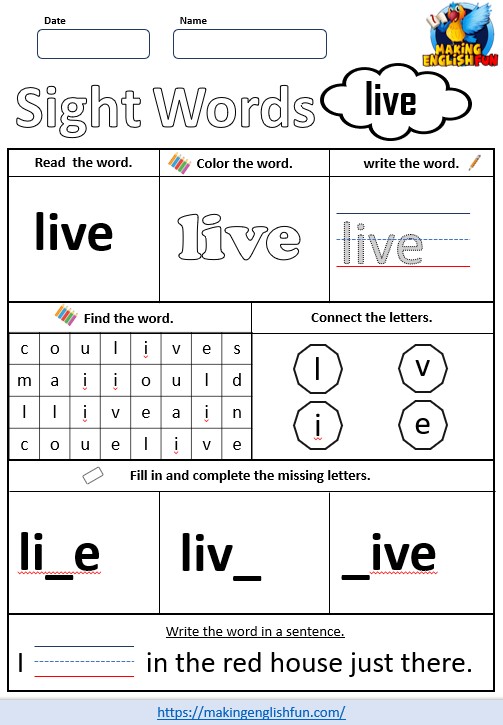What Is The Difference Between Lay and Lie Quiz
In English, certain verbs cause more confusion than others, and “lay” and “lie” are prime examples of this.
Despite sounding similar, these two verbs have distinct meanings and are used in different grammatical contexts. Misusing “lay” and “lie” can lead to misunderstandings and can disrupt the flow of communication.
| Word | Part of Speech | Definition | Example |
| lay | Verb (Transitive) | To put or place something down gently in a flat position. Requires a direct object. | “Please lay the book on the table.” / “She laid the blanket on the grass yesterday.” |
| lie | Verb (Intransitive) | To recline or be in a flat position. Does not require a direct object. | “I like to lie down for an hour after work.” / “He lay on the beach all day.” |
This article aims to demystify these verbs, providing clear guidelines on their usage with practical examples. Understanding the nuances of “lay” and “lie” is crucial for accurate and effective communication in English.

Section 1: Understanding “Lay”
Lay: A Verb that Requires an Object
The verb “lay” is a transitive verb, meaning it requires a direct object – something or someone who receives the action. “Lay” means to put or place something down gently or carefully. Its various forms include “lays” (present), “laid” (past), and “laid” (past participle).
Examples of “Lay” in Use
Consider the following sentences:
- “Please lay the book on the table.” Here, “lay” is followed by the direct object “the book.”
- Yesterday, she laid the blanket on the grass.” In this sentence, “laid” is the past tense of “lay.”
Common Usage
“Lay” is often used when referring to placing objects:
- “Lay your clothes out for tomorrow.”
- “The hen lays eggs.”
Section 2: Exploring “Lie”
Lie: A Verb Indicating Reclining or Resting
In contrast, “lie” is an intransitive verb, meaning it does not require a direct object. It is used to indicate that the subject is reclining or resting in a horizontal position. The forms of “lie” are “lies” (present), “lay” (past), and “lain” (past participle).
Usage in Sentences
Here’s how “lie” might appear in sentences:
- “I like to lie in bed on Sunday mornings.” In this case, “lie” indicates the act of reclining.
- “He lay on the beach all day yesterday.” Here, “lay” is the past tense of “lie.”
The Confusion with Past Tenses
One common point of confusion is the past tense of “lie,” which is “lay” – the same as the present tense of “lay.” Remember, “Yesterday, he lay down” refers to someone reclining in the past, not placing something down.
Lay or Lie Whats the Difference Quiz
You can check out our quiz to practice the difference between its and it’s here as well.
Lay vs. Lie Quiz
Question 1: “Yesterday, I _______ the book on the table.“
Question 2: “She is _______ the table for dinner.“
Question 3: “He has _______ in bed all day because he’s sick.“
Question 4: “The dog is _______ in the shade.”
Question 5: “Every morning, she _______ her book on the desk before class.“
Question 6: “After lunch, he enjoys _______ in the hammock.“
Question 7: “She _______ her keys on the counter and forgot them.”
Question 8: “The dog has _______ in the sunspot all morning.”
Section 3: Tips for Remembering the Difference
The distinction between “lay” and “lie” can be made clearer with a few helpful tips:
- Direct Object Test: Remember, “lay” always needs a direct object, while “lie” never takes one. Ask yourself if the verb is acting on something (an object). If yes, use “lay”; if not, “lie” is likely the correct choice.
- Mnemonic Aids: A simple mnemonic to remember is, “You lay something down, and people lie down by themselves.” This can help you recall the correct usage in the moment.
- Past Tense Confusion: Be particularly mindful of the past tense of “lie,” which is “lay.” It’s different from the present tense of “lay.” For example, “Yesterday, I lay down for a nap” (from “lie”) is correct, not to be confused with “Yesterday, I laid the book on the table” (from “lay”).
Section 4: Practical Usage and Examples
Understanding when and how to use “lay” and “lie” can be reinforced through practical examples:
- “Lay the jacket on the bed, please.” (Here, “lay” is used with an object “the jacket.”)
- “The dog likes to lie in the sun.” (No direct object is involved; the dog is performing the action on itself.)
- “She had laid the documents on your desk before she left.” (“Laid” is the past participle of “lay.”)
- “He had lain there for hours before getting up.” (“Lain” is the past participle of “lie.”)
Conclusion
Mastering the use of “lay” and “lie” is a notable achievement in one’s journey of learning English. These verbs, though often confusing, play distinct roles in language and are integral to clear and precise communication.
By applying the guidelines and practices outlined in this article, you can confidently navigate the use of these verbs in both writing and speech.
We also have an article with over 50 of the most commonly confused words in English here on the site.
What to do next?
How do you remember the difference between “lay” and “lie”? Share your tips or experiences in the comments below.
For more in-depth practice, be sure to check out our interactive quiz on “lay” vs. “lie” and continue honing your English language skills with our resources!
Other Commonly Confused words in English
References
- https://www.merriam-webster.com/grammar/how-to-use-lay-and-lie#:~:text=Lay%20means%20%22to%20place%20something,own%20or%20already%20in%20position.
- https://www.britannica.com/story/lay-lie-lied-lain-when-do-we-use-which
- https://www.rd.com/article/lay-vs-lie/





